Chances are, when you have a medical problem, you start off by going to your primary care doctor, who usually gives you a prescription for one or more drugs.
While you are busy buying and popping pills, you may not realize that the doctor you just put your trust in is almost 90% likely to be wrong about your condition and the selected treatment. According to a study published by the Mayo Clinic [1], only 12% of patients going there for a second opinion came out with the same diagnosis and treatment plan that they walked in with.
Did you know that a whopping 50% (Table 1) [2] of all medical visits in the United States are to providers that identify themselves as primary care doctors? To add insult to injury, approximately 70% of those visits involve prescribing a different drug or simply renewing one that the person has been taking (Table 23) [3]. If you do the math, you will see that big pharma’s stranglehold on your wallet and the whole medical system may well be generated by physician misdiagnosis and a plethora of other costly errors.
Want to Know how Fast and Easy YOU Can get rid of Fatigue, Dizziness and Mood Swings?
The fact that 90% of all primary care diagnosis may be wrong is a serious problem and a threat to our nation right along with the physical, mental, emotional, and spiritual, and financial health of every person that relies on the system. Now it’s the time to learn as much as you can about how your body works, and how diseases actually occur. It is also very important to learn about alternatives to expensive drugs that are robbing you of far more than money. In particular, now it’s the time to learn how to grow and use herbal remedies.
Do You Know What All Those OTCs are Doing to You?
Even though mainstream media only mentioned it in passing, Ibuprofen (Advil and Motrin), Naproxen (Aleve) and Acetomenophen (Tylenol) are three extremely dangerous drugs. Ibuprofen and Naproxen [4] increase your risk of having a heart attack and can cause kidney damage while Tylenol [5] can cause permanent liver damage. Here are some other drugs, some of which can even be purchased by under age children, that can cause serious health problems:
- Benadryl – can cause short term kidney damage [6]. While some sources say it can also increase the risk of dementia [7], there is still some controversy on this matter.
- Proton Pump Inibitors – these include Prevacid, Prilosec, Protonix, and others – these drugs can cause kidney damage [8] and also increase the risk of developing stomach cancer [9] (pay careful attention to the numbers and then see if you agree with the “controversial” assessment of the study.
- Migraine Drugs with Caffeine – Tylenol, Aspirin, and other drugs are combined with caffeine [10] to treat migraines can increase the risk of developing anxiety. It is unclear whether or not consuming beverages or foods with caffeine while taking these drugs has the same harmful effect.
- Sudafed – can increase blood pressure [11] rates and can also cause anxiety and prostate problems.
- Soaps, detergents, hygiene, cosmetic, and body care products – even though these aren’t considered “drugs” or “medications”, soaps, shampoos, cosmetics, hair dyes, and other “personal care” products contain carcinogens and other dangerous substances. The more research you do on personal care products and soaps, the more you will realize they are just as deadly as many products produced by big pharma.
Prescription Drug Side Effects and Their Consequences
Supposedly, certain drugs are only ordered by prescription because there is danger associated with them if people do not take them under direction of someone that knows how to work with them properly. Of course, primary care doctors are licensed by the government and carry malpractice insurance; both of which serve as tacit endorsements to the claim that these doctors are competent to handle these drugs and prescribe them.
Not only that, but this tacit endorsement entitles doctors to have enormous control of our wallets via mandated health insurance schemes and a whole slew of “treatment” guidelines.
Given the number of misdiagnosis at the most fundamental level of medical care, it makes me wonder if the medical accreditation system is really as reliable as we have all been led to believe it is. As challenging as this system is, it seems like there is a serious flaw somewhere, and it may well be costing more lives than it is saving.
When it comes to prescription drugs and their side effects, there are too many drugs and too many consequences to mention all in one article. The best thing you can do is find out more about every single drug you are taking and its side effects.
Here are some common ones you are likely to come across if you dig deep enough into pharmaceutical references for each drug:
- Addiction – opiates, steroids, and many other drugs are habit forming. Sadly, many of these drugs are prescribed in a hospital or emergency room setting and during a time when you are most vulnerable and least able to consider long term consequences of taking these drugs. Learn as much as you can now about these different drugs so that you can decline them or ask for something else. If you are already on a habit forming drug, especially an opiate, it is time to get help.
- Depression disorders – the recent number of celebrities committing suicide has exposed yet another dark side to big pharma’s greedy impact on too many lives. In this case, it is estimated that 40% of adults in the United States [12] are taking prescription drugs that cause depression. Considering half those prescriptions may be for the wrong condition, or no condition at all, misdiagnosis is literally threatening to mental as well as physical wellness. When you consider that 20 veterans commit suicide each day, and that 60% of all “gun violence” is actually people committing suicide, it is easy enough to see that these numbers can be cut in half by banning these deadly drugs. We must also make sure that big pharma is held financially accountable to each and every individual and family that has been harmed by these drugs.
- Anxiety and panic disorders – if you thought the depression side effects were bad, you may not have realized that a whopping 1 out of 3 people in the United States is taking prescription drugs for anxiety or panic disorders. Since these conditions are also a side effect of many prescription and over the counter drugs (including proton pump inhibitors, BTW), perhaps we must once again look at the impact of big pharma and how it’s slimy tentacles reach us through each doctor’s prescription pad.
- Cancer – if you do some research into some of the most common prescription drugs, you will see that there are a number of them that caused cancer in animal studies. While doctors will tell you this doesn’t mean anything, it will be well worth your while to investigate further. As a case in point, during animal testing, it was shown that Prilosec caused stomach cancer in rats [13]. Nevertheless, doctors prescribed this drug to millions of patients. Decades later, we are presented with the fact that proton pump inhibitors, including Prilosec, cause stomach cancer in humans. If you are interested in looking up chemicals that cause cancer [14], you can try using this database to find out more about the animal based trials [15] as well as the impact of various chemicals on genetic expression [16] .
- Kidney and/or liver damage – drugs have to be taken over and over again because your body has many mechanisms for getting rid of them. In most cases, drugs are cleansed from the blood via the kidneys or liver. As a result, these two organs are often damaged by both prescription and non-prescription drugs. If you are on any kind of medication and aren’t getting blood tests that include kidney and liver function profiles, you may be at more risk than you realize. Never take your doctor’s word for it that your blood work is just fine. Get copies of all results and do your own research with regards to the reference ranges and what the results mean. Sadly, there are doctors that will see signs of kidney and liver damage on bloodwork and simply attribute it to the drugs they are prescribing. Since they think taking that drug is of greater benefit than paying attention to those results, it robs you of the choice to disagree when you don’t know what is on those blood tests or do not understand what they mean. If that isn’t bad enough, don’t be surprised if the doctor tells you the reference ranges aren’t anything to be concerned about. At that point, you may want to ask why some reference ranges are strictly adhered to (like blood pressure values that may be inaccurate to begin with, blood sugar, and so on), yet ignored when organ damage may be caused by a prescription drug.
The Cradle to Grave “Disease Management” Cult
Let me be very clear in saying that there are many medical conditions and many people that didn’t get sick because of big pharma or a misdiagnosis. Many doctors mean well enough when they try to solve these problems and must deal with all kinds of issues including inaccurate or incomplete reports of symptoms by the patients. For some people, lifestyle changes or even a very robust and healthy lifestyle will not prevent disease; and certainly, nothing on this Earth will lead to immortality.
These factors can make it very hard to recognize when you are and when you are not trapped by the cult of cradle to grave disease management. Since our society is filled with millions of medical providers and patients all enmeshed in the same system, it can often be difficult to make a commitment to wellness. In fact, it can take many years of hard work, asking questions, and determination to be well and whole.
Once you start using over the counter and prescription drugs, including herbal “remedies”, the whole task gets much harder because you have committed to believing there something wrong with you rather than looking seriously at things like media based brainwashing, air, food, and water based pollutants. From that perspective, it can be said that we have created the monster of big pharma and the cult of disease because we are the ones that ascribe to it, agree with it, make use of it, and spend money on it. As with so many other problems facing this nation, informed monetary and electoral votes can, and should be used to solve this problem.
Can You Really Trust Cradle to Grave Herbal Remedies?
In Ayurvedic and Traditional Chinese Medicine (TCM) texts, you will find many references to teas and other concoctions of plant and animal based ingredients. You will also find detailed information on how to use these remedies and how to diagnose illness based on various observations. While some ideas may seem unusual, modern science is slowly but surely finding common points with more than a few of these ancient ideas. For example, just a few decades ago acupuncture was considered quackery. Today, we can map the nervous system and have actually located the nodes and other points that acupuncture specialists use. In a similar fashion, new research in heart energy fields, bioenergy (not the fuel type) and biophotons may soon prove these ancient texts were far more accurate in terms of how they describe the causes of illness and how to restore wellness.
No matter whether you walk into a supermarket, department store, or dedicated dietary supplement store, you will see hundreds of herbal extracts that have been packed into neat little pills. You do not need any kind of training or understanding of things like TCM or Ayurvedic medicine to buy a few bottles of “herbal medicine” and take them. All you have to do is read the label and trust that what you are reading is true.
Now, if you have an inquiring mind, you may even have found a few “good” alternative medicine sites online and think you know everything about what you are buying. Here are just a few problems with the paradigm you are buying into with cradle to grave herbal remedies:
- First – unlike going to your doctor’s office, you may not have diagnostic tests to help you determine what is actually wrong, let alone a range of possible conditions to consider. A constant sore throat may simply be an allergy like it says on the herbal remedy bottle or it could be a sign of throat cancer, GERD, or several other problems. The bottom line is you don’t know for sure without the proper tests and investigation into the symptoms.
- Second – if you take the time to read translations of the ancient texts from various civilizations, you will see that the herbs you are now being told to take once a day in pill form were never meant to be used that way. Rather, they are usually meant to be taken as teas with specific foods several times a day. There are also duration limits in these texts that may not be noted in these “superior” formularies. Lack of observing time limits for taking these herbs may lead to kidney, liver, and other damages just as surely as it does with OTC and prescription based drugs. Unfortunately, there are very few studies on these topics; and it can be very hard to get doctors to do the kinds of bloodwork required because the “insurance company won’t pay for it”, or they “aren’t qualified to order the test because some other specialist usually orders it”.
- Third – there are no uniform standards and tests to determine what is actually in those pills. Some studies have shown that the extracts involved are in such small amounts they do no good, or they are not present at all. Everything depends on the brand of supplement and the cost involved in growing and processing the extract. In general, the rarer the plant, the more likely you are to be getting fake pills. As a case in point, many people these days are interested in Golden Seal, which enhances the effect of other herbs and can be used for various conditions. Sadly, this particular plant is endangered, and the licensing involved in manufacturing supplements is quite complex and extensive. These all point to the likelihood that many supplements that claim to contain viable amounts of Golden Seal simply aren’t what they claim to be.
- Fourth – big pharma also has its hands in the herbal supplement business. Many pharmaceutical companies have subsidiaries that only sell herbal supplements. Perhaps it should come as no surprise that they use the same exact pill based systems and dosing schedules that have enabled them to make such a huge fortune. In the meantime, people that have suffered the ill effects of conventional medicine simply repeat the same cycle when they embrace cradle to grave herbal remedies.
- Fifth – marketers can’t help but take advantage of a good story. If there is one part of cradle to grave herbal medicine that irks me, it is the usage of “cultural history” as a marketing tool. The Sans Bushmen, Chinese, Indians, Egyptians, Aztecs, Incas, First Nation people, and a plethora of other people did not put their herbal remedies in a bottle for sale on a shelf with a label that said “take as directed”. As a case in point, let’s look at Hoodia Gordonii, that infamous weight loss herb (and also an endangered species) that the Sans Bushmen “gifted” to us fat Americans. The fact is, the Sans Bushmen use Hoodia to curb hunger and increase the potential for euphoria in people that are slated to die of starvation because there isn’t enough food to feed them and the upper class people in the community. Quite frankly, knowing that little babies are given this “herb” simply because they don’t have as much money and power as some rich leader ought to be enough to curb anyone’s appetite without buying a bottle containing substances of questionable origin. By the time you get into the cultural issues involving sacred plants from other cultures, the marketing ploys become every bit as ugly and detestable as big pharma reaching into your wallet via medical providers.
The Toll of Modern Medicine on Your Constitutional Rights
Before I get into finding ways to get free of Big Pharma, there is one other thing you should know about its death grip on our lives and our nation.
Recently, the AMA and other medical organizations have come out against gun rights and are demanding increased gun grabbing oriented regulations. In my opinion, they are no better than the entertainment industry that would also rather blame guns instead of their own products. Given the number of people that may have committed suicide with a gun because they were on drugs that were improperly prescribed to begin with, it would not surprise me if these medical organizations are simply projecting their guilt onto guns rather than lose the kind of power they exert over government, our lives and financial resources; not to mention the fact their lawyers are thinking about the potential for class action lawsuits and other financial risks that would come with an exposure of the truth. Never forget this when you go to vote for political leaders and when you go to open your wallet.
How Do You Get Away From Big Pharma?
As noted earlier, there are going to be times when you need competent medical help. There are also going to be times when the answers are going to involve taking some kind of drug to alleviate the condition, or hopefully cure it without causing more problems.
You must never forget that using herbs for “medicinal purposes” is no different from taking any other drug. Herbs have side effects and interactions just like any other drug. Taking too much or in the wrong context can kill you or cause long term internal damage, and taking too little can prevent you from being restored to wellness.
That all being said, herbal remedies used responsibly are a key to getting away from big pharma.
Here are the basic steps:
- You must develop a robust and detailed knowledge and understanding of how the human body works and the biochemistry involved. You must also be able to trace system to system interactions and cascades so that you have a full picture of what is going on and how various drugs or treatments affect those cascades.
- If you are going to use herbs from one system such as TCM or Ayurveda, only use that system and learn it as fully as possible. Mixing herbs from different systems is like mixing together different religions. There is no telling what you will come up with or if it is even safe.
- Get your information from reliable and creditable sources. If you want to learn about a specific herbal tradition, go to an instructor that is recognized by that culture.
- Use, and also understand the limits of modern scientific research and resources. Sources like the nih.gov are very useful for new and emerging studies on herbal remedies. Just remember there is a huge difference between results in a Petri dish and those in a body. As a case in point, curcumin is one of the most amazing remedies for everything from cancer to heart disease… in the Petri dish. In order to reach and maintain therapeutic levels in the body, however, piperidine and fatty oils must be present or it won’t even be absorbed and carried to where it is needed in the body.
- Know your medical history and that of your family. These will serve as guidelines for figuring out which herbs to focus on as well as help you look for other ways to restore wellness.
- Know and resolve your environmental – air pollution, water pollution, and food based toxins such as GMOs and pesticides are all taking an enormous toll on physical health and mental wellness. Unless you know what is going on around you and how it affects your body, making a competent decision about any kind of therapy is difficult at best. If you do not solve the environmental or lifestyle issues, herbs will not restore you to good health anymore than OTC and prescription drugs. Neither herbs nor drugs can do magic. Masking symptoms is not the same as solving the underlying problem.
- Change your lifestyle – this is the time to get fit, attend your diet, stop smoking, stop drinking too much, stop using drugs, shield yourself from electromagnetic smog, and get control of your stresses. So many diseases start with bad lifestyle choices, it is no wonder big pharma has such a stranglehold. Sometimes going within and changing lifestyles can be very hard, but it is also the best way to achieve freedom from big pharma. It may not solve everything, but it will go a long way to helping. I would also point out that some people feel that getting right with God is also an important part of lifestyle change. If this works for you and leads you to do better in other areas of life, then by all means, use what works.
Growing and Preparing Herbs
As you research different herbs, medical conditions, and wellness, you are bound to feel frustrated by all the obstacles to using them. Fortunately, you will also find that some of the most common herbs are easy to grow and prepare. In fact, many of them may already be in your kitchen. So why bother growing them and preparing them manually when you only need to go to the supermarket?
If you thought the situation with OTC, prescription drugs, and herbal supplements was bad, you may not have realized that the herb aisle in your supermarket is also seriously compromised. Take Turmeric as a case in point. This herb is actually very easy to grow and many different spice manufacturers do just that. Sadly, like many other plants, Turmeric also absorbs the dangerous toxins in the soil and water. In this case, many manufacturers grow Turmeric [17] in fields that are contaminated with lead.
Not so long ago, if you stayed away from corn and soybean, you could be fairly certain that you were also avoiding the most common sources of GMO foods. Today, potatoes, yeast, garlic, apples, and just about every other food and herb has some kind of GMO variant in the food supply or on the way in. To add insult to injury, when you buy herbs in the food store, you never know what kind of pesticides and herbicides were used. Sadly, today, many “organic” products actually come from China [18] , are processed in China [19] , or are manufactured by companies in the US owned by China [20]. There are no guarantees whatsoever that the organic label [21] really means pesticide and toxic chemical free.
All of these factors point to a serious flaw in any plan to use herbal remedies in place of the big pharma paradigm. No matter whether you are going to use a herb on a short or long term basis, growing and preparing your own plants is very important.
Today, with careful research, you can still find heirloom seeds for many herbs and grow them in organic soil using properly filtrated or purified rainwater (let’s just leave it at, for the moment, that rainwater isn’t what it used to be and often contains acids and other toxins that are not good to use in conjunction with growing herbs).
This Resource Will Get You Started on Herbal Remedies
There is no question that getting free of big pharma is a challenging task. Our cultural values and the people used to enmesh these deadly drugs in our lives are very powerful and want to maintain their power over us and our society. Herbal remedies grown, prepared, and used properly are vital key that can help you succeed and increase your chance of restoring and maintaining wellness.
When it comes to a study of knowledge and information of such a large scope, you have to start somewhere. It is sometimes best to start with things that are easy to read and understand so that you can form a basis and build from there. Backyard Pharmacy is a starting point that can be used by anyone. It will give you some basic remedies that you can grow in your own home or yard and use immediately. Depending on your condition and the degree of severity, you may even be able to get off a plethora or big pharma drugs that are a costing a fortune and robbing you of your health in the bargain.
Here are some herbs you will learn about in this book:
- Sage – when burned to make smoke (smudging), white sage can kill bacteria and other pathogens in the air. Common, or culinary sage, which is slightly different from white sage can also be used for this purpose. Common sage may or may not be useful for managing diabetes [22] . It has a proven capacity to lower high cholesterol levels [23] .
- French Marigold – anyone that has a diagnosis of cancer [24] should be looking seriously at marigold tea. This common flower is one of the best for slowing down or stopping the growth and spread of several different kinds of malignant cells and tumors. Other strains of marigold are useful healing venuous leg ulcers [25] , cuts and burns. If you have a hard time growing aloe, then marigold may be easier for you to grow and work with.
- Mint – Peppermint is one of those herbs that can be used to manage a wide range of illnesses. It is also an excellent remedy for household problems such as rodent control. Since mice hate the smell of mint, planting it around your home will keep them out. Medicinally speaking, mint [26] is also useful for managing bacterial infections, cancer, stomach distress, sore throats, and congestion. Since mint contains menthol [27] , it can cause lung collapse in babies. Many people that want to get started with making essential oils start with mint. This oil can be very dangerous to handle as the pure extract can burn your skin and is poisonous at high doses. Use with great care in diffusers and in teas.
- Chamomile – this member of the daisy family is one of the most fascinating and wide ranging in its capacity to restore wellness. Recent studies [28] indicate that it can be used to relieve skin inflammation, manage anxiety, insomnia, heart disease, diabetes, osteoporosis, and high cholesterol levels. It can also kill off several different kinds of cancer cells including those associated with breast, prostate, skin, and ovarian cancers. It is also often used as an immune booster and can help fight bacterial infections.
- Holy Basil – it is very important to realize there are hundreds of different kinds of basil that have different flavorings and medicinal properties. As a case in point, cinnamon basil and and holy basil (not the same as sweet basil) may look similar, however they are very different in the flavorings and compounds. Cinnamon basil contains some compounds found in cinnamon, however it may not be useful for lowering blood sugar levels. On the other hand, holy basil [29] has many different medicinal effects. It can combat a wide range of disease bearing bacterial, fungal, and viral organisms. It can also be used as a radiation shield and cancer fighter. Holy basil may also be useful for managing diabetes, digestive problems, and many conditions caused by inflammation.
- Rosemary – this herb is absolutely necessary in these times for safe food preparation. Adding this spice to foods can help with killing off pathogens in meat and other foods that may be contaminated with deadly bacterial infections. Rosemary [30] is also useful for managing cancer [31] and dementia [32] .
As the cost of medical care continues to skyrocket while quality gets worse, many people are looking for other options. The fact that misdiagnosis may be causing, or at the very least making suicide, “gun violence”, and addictive/dangerous drugs problems even worse is cause to seriously question and immediately undo any legislation that attempts to increase the amount of money and power flowing into the medical industry and its associated lobbyists.
While you may be tempted to feel safer using herbal remedies, this must also be done with great care. If you are truly serious about getting away from big pharma and are committed to achieving wellness, then you can still use some common herbs for that purpose. Growing and preparing your own herbs combined with dedication to rigorous research and attention to detail is the best way to ensure success and increase your chance of gaining and maintaining good health.
Backyard Pharmacy is a good starting point and will serve beginners to this field of knowledge well.
[1] https://www.eurekalert.org/pub_releases/2017-04/mc-mcr033017.php
[2] https://www.cdc.gov/nchs/data/ahcd/namcs_summary/2015_namcs_web_tables.pdf (Table 1)
[3] https://www.cdc.gov/nchs/data/ahcd/namcs_summary/2015_namcs_web_tables.pdf (Table 23)
[4] http://bit.ly/2McDUa9
[5] https://livertox.nih.gov/Acetaminophen.htm
[6] https://www.ncbi.nlm.nih.gov/pmc/articles/PMC3814442/
[7] https://www.ncbi.nlm.nih.gov/pmc/articles/PMC4592307/
[8] https://www.kidney-international.org/article/S0085-2538(17)30005-4/fulltext
[9] http://bit.ly/2K6TRRD
[10] https://www.webmd.com/anxiety-panic/anxiety-causing-meds#1
[11] http://www.nbcnews.com/id/24777955/ns/health-health_care/t/drugs-doctors-wouldnt-take/
[12] https://www.nytimes.com/2018/06/13/well/prescription-drugs-depression-suicide.html
[13] https://toxnet.nlm.nih.gov/cpdb/chempages/OMEPRAZOLE.html
[14] https://toxnet.nlm.nih.gov/newtoxnet/ccris.htm
[15] https://toxnet.nlm.nih.gov/newtoxnet/cpdb.htm
[16] https://toxnet.nlm.nih.gov/newtoxnet/genetox.htm
[17] http://bit.ly/2MbLKAK
[18] https://www.fooddemocracynow.org/blog/2017/mar/23-0
[19] https://www.seattletimes.com/business/questions-remain-about-organic-foods-grown-in-china/
[20] https://www.processingmagazine.com/china-invests-in-the-u-s-food-industry/
[21] https://livertox.nih.gov/Acetaminophen.htm
[22] https://www.ncbi.nlm.nih.gov/pubmed/16923227
[23] https://www.ncbi.nlm.nih.gov/pmc/articles/PMC2769154/
[24] https://www.ncbi.nlm.nih.gov/pubmed/25539472
[25] https://www.ncbi.nlm.nih.gov/pubmed/16372475
[26] https://www.ncbi.nlm.nih.gov/pubmed/16767798
[27] http://bit.ly/2tnw7OI
[28] https://www.ncbi.nlm.nih.gov/pmc/articles/PMC2995283/
[29] https://www.ncbi.nlm.nih.gov/pmc/articles/PMC4296439/
[30] https://www.ncbi.nlm.nih.gov/pmc/articles/PMC4431423/
[31] https://www.ncbi.nlm.nih.gov/pmc/articles/PMC5133115/
[32] https://www.ncbi.nlm.nih.gov/pubmed/20377818


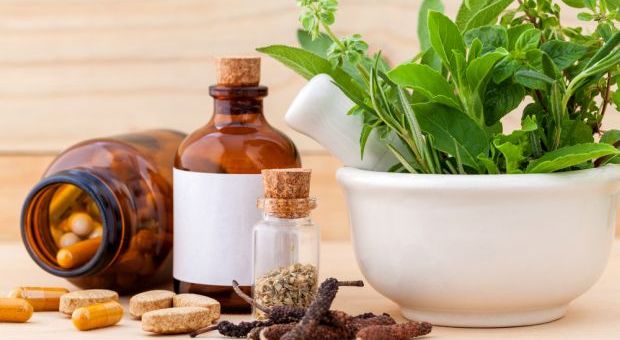

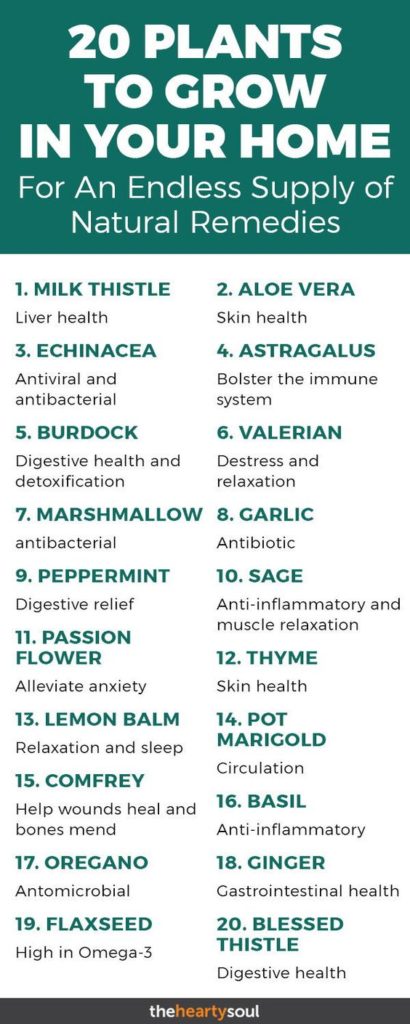

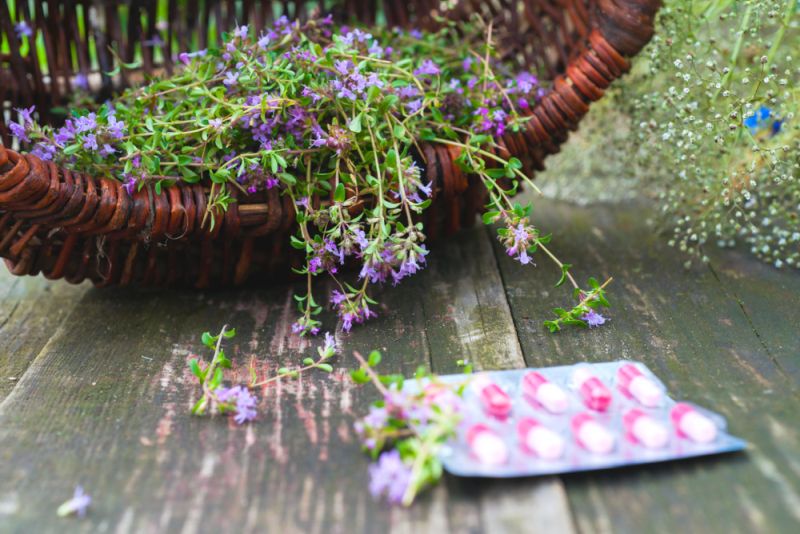

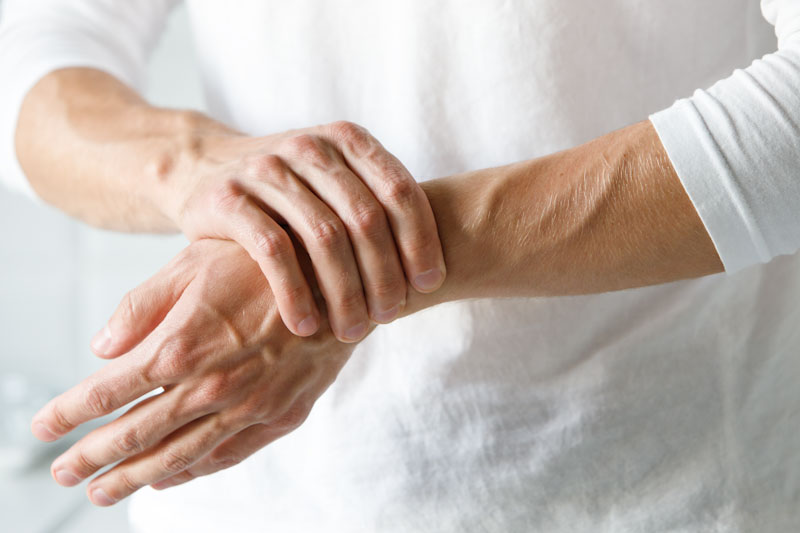
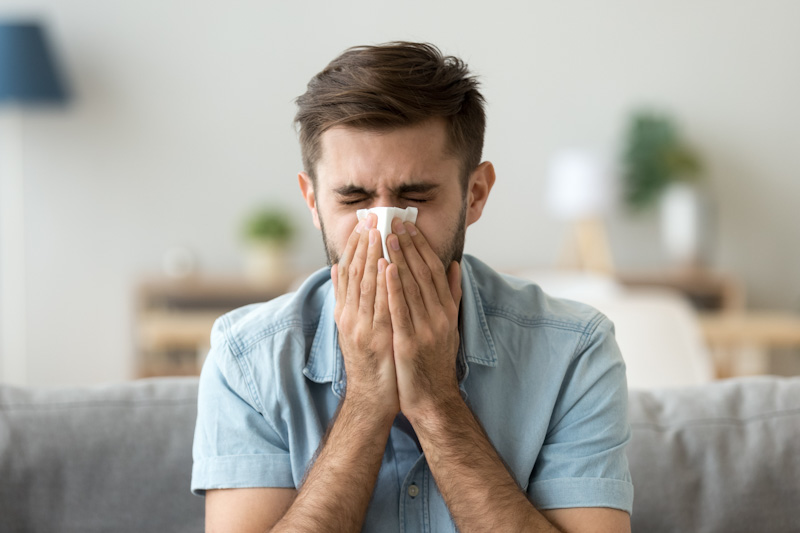
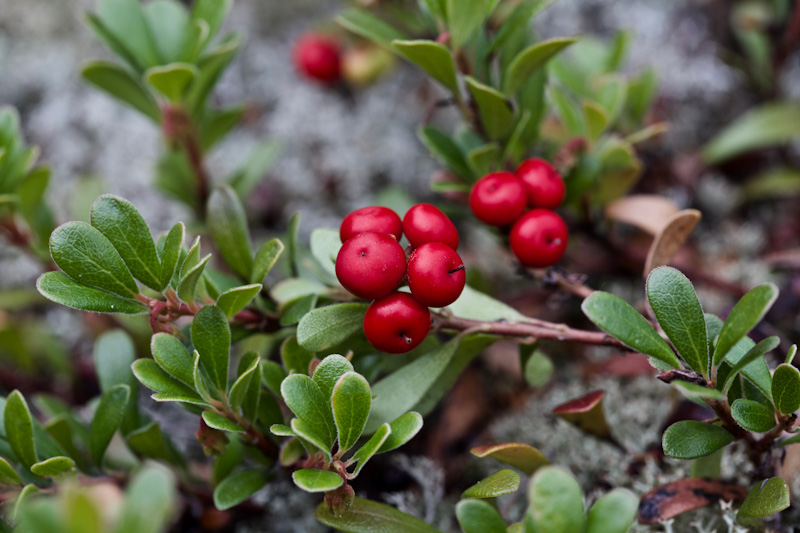
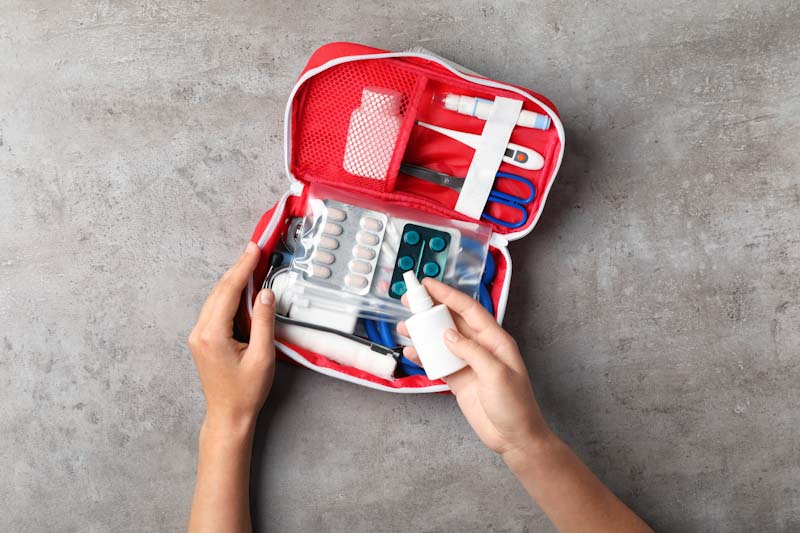


michelle | June 21, 2018
|
Thanks you Carmela. I teach classes on emergency preparedness and we are starting a section “what do you do when there’s no Dr around” I am going to use your information as another guide for them to research. Crediting you of course 🙂
pelagiaeast | June 21, 2018
|
I hope Elizabeth Millard is the author of the book you mean. There is also a Back Yard Pharmacy by another author.
Alex | June 22, 2018
|
Hello,
Thank you for your time to write to us.
The name is just a title coincidence, with Mrs. Elisabeth Millard being the author of the book that you mentioned, in which she talks about growing medicinal plants, while our Back Yard Pharmacy is explaining how to build a vertical garden in your back yard.
Therefore, the content of both books is different.
Stay safe and have a great day!
Alex from Survivopedia.
Linda S | June 22, 2018
|
Best thing you can do for your health is practice everything in moderation and stop worrying about your health! I’m 72 & haven’t seen a doctor in 30 years. I have aches & pains but we were never promised a pain-free life. Sleep when you’re tired, eat when you’re hungry & stay away from the national news. Don’t worry about what other people are doing with their lives or what they think you should be doing with yours. Be kind but don’t take any crap. When it’s your time to die just do it.
Ted | July 22, 2019
|
Absolutely Right! Thank-you for the Common Sense!
Grammyprepper | July 23, 2019
|
Excellent post, Carmela! Totally agree with your assessment of the western tradition of medicine. It handlews trauma and emergencies extremely well, but wellness, not so much. I also agree with you on ppl ‘thinking’ they are doing the ‘healthy’ thing by jumping into more natural remedies with little information. Myn suggestion is to find a Naturopathic or Functional Medicine practicioner (and they can be tough to find) who can help one focus on more natural methods of healing, as well as offer testing to support choices in treatments. I second your opinion that lifestyle changes are extremely important in a journey to wellness. I am a retired RN, I do not have a ‘regular’ doctor. I would love to find a naturopath or functional medicine practicioner to work with, but there aren’t many nearby plus insurance issues (altho functional medicine practicioners are more often covered vs. naturopaths). Minor illnesses and injuries are handled here at home. But I was grateful for the ‘western tradition’ when I recently had to have my gallbladder out (I would have handled that at home, but didn’t recognize the early symptoms quickly enough).